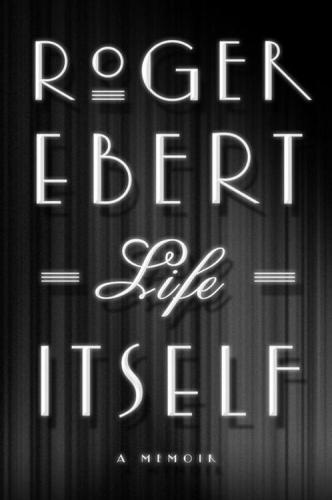
Life Itself
A Memoir
کتاب های مرتبط
- اطلاعات
- نقد و بررسی
- دیدگاه کاربران
نقد و بررسی

Starred review from July 25, 2011
It's hardly surprising that Ebert, the Pulitzer Prize-winning film critic for the Chicago Sun-Times since 1967, begins this candid examination of an extraordinary life with an allusion to Ingmar Bergman's Persona, about an actress who loses her voice in mid-performance. Though three thyroid cancer surgeries resulting in the removal of his lower jaw have left Ebert unable to speak, eat, or drink, these are not famous last words. Forgoing a traditional linear format, each chapterâparticularly "My Old Manâ and "Big John Wayneââcould function as a stand-alone essay. Born in Urbana, Ill., in 1942, Ebert spent a carefree childhood, often with his nose in a book. Drawn to newspapers beginning in high school, he became the sports reporter for his school paper before rising to the rank of co-editor. The position of film critic fell into his lap at the Sun-Timesâa paper he joined after leaving a graduate English programâand Ebert hasn't looked back. And while films have governed his life for close to 50 years, he wisely doesn't choose the greatest hits version of his reviewing career, focusing instead on the life he's lived in between screenings: his battle with alcoholism; tight-knit friendships forged in the newsroom (and bar); and his marriage to Chaz, whom he calls "the great fact of my life.â Hollywood gets its due, but it's an ensemble player, sharing the screen with reminiscences both witty and passionate from one of our most important cultural voices.

August 1, 2011
The Pulitzer Prize–winning film critic reviews his life and career, finding much to be grateful for.
Ebert (The Great Movies III, 2010, etc.) presents a disjunctive, impressionistic, episodic but often moving memoir. Throughout, he alludes to his current medical difficulties (cancer, several failed surgeries, the inability to speak or eat), though he focuses on them more sharply in the final chapters. He seems to have achieved a kind of peace, referring to himself as the Phantom of the Opera and, later, "an exhibit in the Texas Chainsaw Museum." He begins in fairly conventional fashion, revisiting moments from his childhood and adolescence, but it's not long before he abandons chronology. After his assumption of the film-critic gig at the Chicago Sun-Times (1967), he adopts a new strategy, offering stand-alone chapters about influential individuals in his life. Here we find the expected (Studs Terkel, Martin Scorsese), the unexpected (Russ Meyer, Lee Marvin) and the necessary (Gene Siskel). Ebert has a separate chapter devoted to his late critic partner from TV days, noting that he felt they were brothers, but competitive ones. Siskel then appears continually the rest of the way, a sort of touchstone to measure the value of some of Ebert's experiences. The author deals candidly with his alcoholism (on the wagon since 1979, and he credits AA), his weight and his early-career arrogance. He also celebrates his wife, Chaz (he dedicates the volume to her), and in his chapter about her he praises her in about every possible way for every possible reason. He also examines his new career as a blogger.
Two thumbs sideways.
(COPYRIGHT (2011) KIRKUS REVIEWS/NIELSEN BUSINESS MEDIA, INC. ALL RIGHTS RESERVED.)

April 15, 2011
The first film critic to win a Pulitzer, Chicago Sun-Times columnist Ebert has been reviewing films since 1967 and talked about them on TV for 30 years; his column is now syndicated in more than 200 newspapers worldwide. After treatment for thyroid cancer, he lost his voice and his ability to eat or drink--but he's still writing. Here's a memoir, ranging from his early newspaper days through marriage, alcoholism, and spiritual beliefs; for all film nuts.
Copyright 2011 Library Journal, LLC Used with permission.

Starred review from September 1, 2011
Ebert is best known, of course, as the nation's most prominent film critic; but in recent years, he's turned to exploring more personal concerns on his widely read blog, leading to this poignant memoir. Five years ago, surgeries following thyroid cancer left him unable to speak, eat, or drink, but as he recounts, he began to replace what I lost with what I remembered. This enhanced recall allows him to relate with exhaustive detail his halcyon if unremarkable childhood in a small town in the Midwest and his life-changing college days. When the narrative turns to journalism and, inevitably, movies, as Ebert falls into his reviewing gig at the Chicago Sun-Times in 1967, the focus becomes sharper, and even the tangential chaptersdevoted to topics ranging from his encounters with film legends to his stormy relationship with TV partner Gene Siskelare cogently engaging. But it's the most personal segments, dealing with his struggle with alcoholism, his supportive wife, Chaz, and his recent illness, that give the book its considerable emotional heft. Ebert illuminates and assesses his life with the same insight and clarity that mark his acclaimed movie reviews.(Reprinted with permission of Booklist, copyright 2011, American Library Association.)

























دیدگاه کاربران